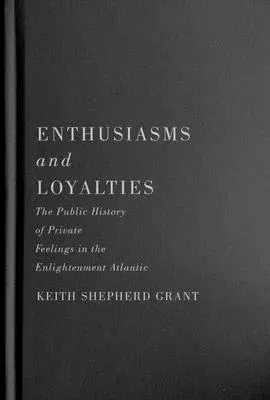The Enlightenment Atlantic was awash in deep feelings. People expressed
the ardour of patriots, the homesickness of migrants, the fear of slave
revolts, the ecstasy of revivals, the anger of mobs, the grief of
wartime, the disorientation of refugees, and the joys of victory. Yet
passions and affections were not merely private responses to the events
of the period - emotions were also central to the era's most
consequential public events, and even defined them. In Enthusiasms and
Loyalties Keith Grant shows that British North Americans participated in
a transatlantic swirl of debates over emotions as they attempted to
cultivate and make sense of their own feelings in turbulent times.
Examining the emotional communities that overlapped in Cornwallis
Township, Nova Scotia, between 1770 and 1850, Grant explores the
diversity of public feelings, from disaffected loyalists to passionate
patriots and ecstatic revivalists. He shows how certain emotions -
especially enthusiasm and loyalty - could be embraced or weaponized by
political and religious factions, and how their use and meaning changed
over time. Feelings could be the glue that made loyalties stick, or a
solvent that weakened community bonds. Taking a history of emotions
approach, Enthusiasms and Loyalties aims to recover and understand the
wide range of political and religious emotions that were possible -
feelable - in the Enlightenment Atlantic.

